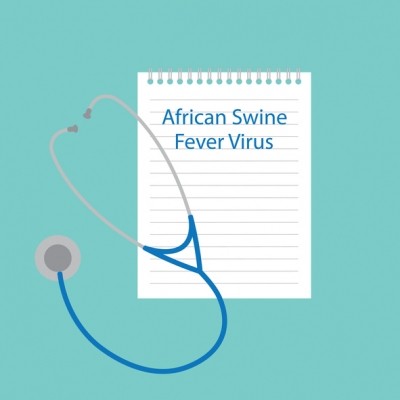Is French-Chinese accord a potential blueprint for European markets threatened by ASF?

The 'regional management' arrangement, which came into force on December 14, means China would allow pork exports from unaffected regions of France even if African swine fever (ASF) occurred elsewhere in the country, reported Reuters citing a statement from the French economy and agriculture ministries.
The accord was signed during a regular session of French-Chinese economic talks.
"This agreement is the first of its kind to be signed by China in favor of a European Union country. It is thus a model and heralds future agreements with other sectors and countries," said French agriculture minister Julien Denormandie.
French industry body, Inaporc, welcomed the signing of the agreement and hailed it as proof of the efficiency of French food and veterinary controls.
ASF is not yet present in France.
China is France’s biggest export market for pork products.
China and other Asian pork buyers banned imports of German pork in September 2020 after the first ASF case was confirmed in wild boars in the east of the country. Germany continues to have discussions with Beijing about lifting the blanket ban on its exports in favor of a regional approach.
ASF outbreaks
According to data from the OIE and the EU Commission, published in the latest global swine disease monitoring report from US swine health information center (SHIC), six countries, including Italy, Poland, Romania, Slovakia, Ukraine, and Russia, reported new ASF outbreaks in domestic pigs in December.
Meanwhile, 11 countries, including Bulgaria, Estonia, Germany, Hungary, Italy, Latvia, Lithuania, Poland, Romania, Slovakia, and Russia reported cases of ASF in wild boar.
In Germany, in December, the number of ASF cases in wild boar exceeded the 3,000 mark.
The cluster of outbreaks keeps expanding in all directions, in Western Poland, from the location where the first outbreaks occurred in November 2019. Since then, over 6,107 outbreaks in wild boars, and 42 in commercial farms, have been reported. Outbreaks are being reported to the north, along the border with Germany, and to the south to be as close as 15km from the border with the Czech Republic, confirmed the SHIC review.
New cases of ASF were discovered in domestic pigs and wild boar in the Amur region in the far eastern federal district of Russia, noted that publication. In the first week of December, pigs in a backyard herd of 17 animals tested positive for the virus. Later, three ASF-positive wild boar carcasses were identified nearby. Both locations border China.
In November, six countries in Asia - South Korea, Vietnam, China, Indonesia, The Philippines, and Lao - reported new ASF outbreaks on pig farms.
Other pig disease incidents
The SHIC report also outlined how Japanese authorities had confirmed three new outbreaks of classical swine fever (CSF) in commercial farms - over 18,000 pigs were destroyed subsequently.
In Canada, Manitoba closed the year with 30 porcine epidemic diarrhea (PED) outbreaks in less than three months – half of which were reported in December.








